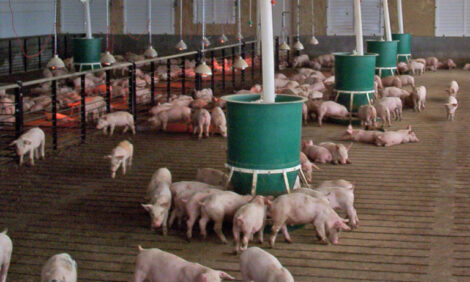



Critical Appraisal of Evidence that Low-dose, Long-term (Growth Promotion) Antimicrobial Use Augments Public Health Risks from Antimicrobial-resistant Organisms
A report from Peter Davies of the University of Minnesota and published by Pork Checkoff highlights the shortage of suitable scientific material to review the risks of the development of antibiotic resistance associated with using antimicrobial growth promoters in farm animals.Antimicrobials are important tools for ensuring the health, welfare and productivity of pigs raised for food.
Banning of antimicrobial growth promotant use in Denmark, and subsequently more widely in the EU, has prompted many entities to seek more restricted availability of antimicrobials for food animals in the USA.
The primary target for restriction is the use of low-dose, long-term administration of antimicrobials for ‘production purposes’.
This project evaluated the scientific evidence that low dose, long term use of antimicrobials in pig production augments public health risks from antimicrobial resistance. The appraisal focused on evidence cited in four key documents calling for regulatory restriction of low dose antimicrobial use (FDA Guidance for Industry#209; Preservation of Antimicrobials for Medical Treatment Act; Pew Commission Report on Industrial Farm Animal Production report; Keep Antibiotics Working Group annotated bibliography).
*
"The most prudent option would be elimination, based on the precautionary principle, of use of antimicrobials for production purposes in feed of finishing pigs, but preservation of all existing therapeutic, metaphylactic and prophylactic options in weaned pigs."
A total of 154 papers cited by these sources were categorised as 1) descriptive (n=48); 2) analytical (n=37); or 3) reviews (n=69).
Two evaluation tools (one for original studies, one for reviews) were developed for systematically evaluating individual papers. Only 12 of the cited papers presented primary research data relevant to the specific purpose of this study (comparing the impact of low dose antimicrobial use to other modes of antimicrobial use in food animals). Further efforts were made to identify relevant primary research data relevant to the question.
It is concluded that the vast majority the papers cited by these sources contain negligible primary research evidence to support the contention that low dose antimicrobial use exerts more selection pressure for resistant bacteria than therapeutic uses.
Currently available evidence is inadequate to provide any meaningful conclusion regarding the relative effects of different modes of antimicrobial use on the emergence of antimicrobial resistance in pathogens or commensals in commercial swine populations. The precautionary principal underlying regulatory changes in Europe remains the centerpiece of arguments for similar regulation in the USA.
The author proposes the most prudent option would be elimination, based on the precautionary principle, of use of antimicrobials for production purposes in feed of finishing pigs, but preservation of all existing therapeutic, metaphylactic and prophylactic options in weaned pigs.
However, given the likely implementation of proposed changes, industry needs to focus on the expected negative impact on pig health, particularly related to enteric disease in weaned pigs, and the likely constraint of manpower of food animal veterinarians that will be necessary to provide greater veterinary oversight of all antimicrobial use in food-producing animals.
This report was written by Peter Davies of the University of Minnesota and published in October 2013.
updated April 2014








